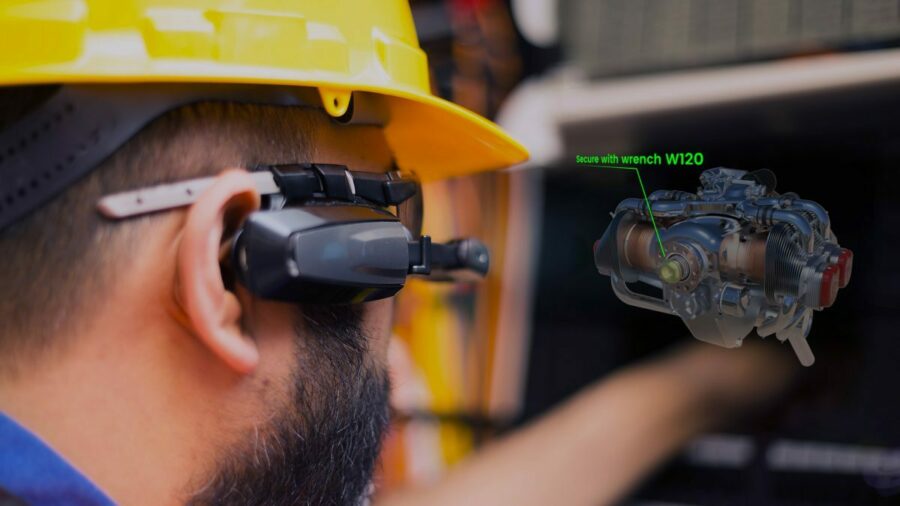Augmented reality in industry and service management
- Augmented reality
Research in 150 manufacturing and service companies using augmented reality shows huge benefits in knowledge transfer, onboarding, training and reduction of costs and faults.
Augmented Reality in the Industry and Service Management
Research in 150 manufacturing and service companies using Augmented Reality shows huge benefits in knowledge transfer, onboarding, training and reduction of costs and faults.
We waded through five big reports so you don’t have to: here are the key take-aways!
- Improved knowledge transfer and a significant reduction in training time by 50% in comparison to classical class room training.
- Increase in productivity for field staff that caused a reduction in need for overtime by 10 to 12%, thus bringing costs down.
- Decrease in cost for remote assistance by applying remote support features.
- The ROI time for most companies was estimated less than 6 monts.
- By 2020, 25% of the current workforce will be nearing retirement. Knowledge that could potentially be lost can be conserved in digital format, preventing loss of knowledge and knowledge transfer.
- In digital form, this knowledge can serve as core to be iterated, improved and built upon.
- Using Augmented Reality now and in the future is deemed innovative. Companies that use AR are perceived as more innovative versus companies that do not.
- The required time to train new staff can be reduced by 30-50% using Augmented Reality.
- Reduction in cost by using digital parts versus expensive real parts.
- Ability to automate the flow of conceptualizing to testing on the work floor.
- Live communication and live annotations between colleagues cause significant increase in knowledge transfer and reduction in faults.
Augmented Reality is making huge differences in not only the manufacturing or service industries, but virtually (pun intended) any company.
Humans are visual beings, augmented and virtual reality solutions are versatile, cost-effective and are strong in storytelling, causing a huge increase in knowledge transfer, knowledge retention and a decrease in mistakes and costs.
